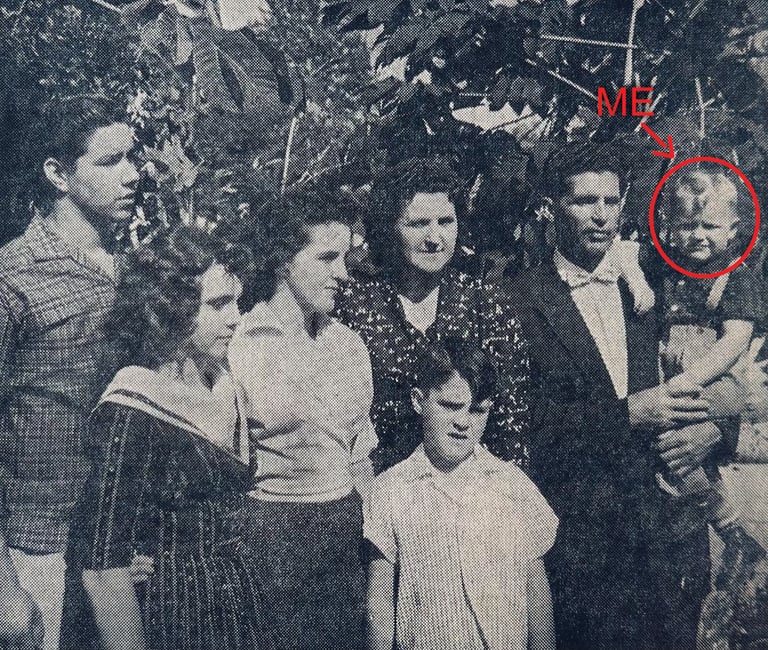Ministry Without Barriers
Embracing Humility, Growth, and Authentic Connection
4 min read


Addressing our implicit biases, cultivating cultural humility, and tailoring our approach to the communities we serve—these are vital to ensuring that our ministry reflects the fullness of Christ’s love. As a missionary’s kid, I saw firsthand how my parents, in all their human imperfections, dedicated themselves to a 50-year mission that left a lasting impact. Their work was not about being flawless but about being faithful... showing up, listening, and serving with love. Their legacy reminds me that true ministry isn’t about perfection; it’s about a willingness to grow, to learn from others, and to embody Christ’s love in our everyday interactions.
If we are called to serve all people, then we must be willing to examine how our own perspectives, assumptions, and cultural conditioning might get in the way. Jesus didn’t just preach about love; He embodied it, meeting people where they were, tearing down barriers, and seeing them for who they truly were. Can we say the same about our ministries?
Ministry is deeply personal, and yet, if we’re not careful, we can allow our unconscious biases to create distance rather than connection. No one is immune to this. We all have blind spots. But the difference between a ministry that uplifts and one that alienates is whether we are willing to acknowledge those blind spots and grow from them. Proverbs 3:5-6 reminds us, “Trust in the Lord with all your heart and lean not on your own understanding; in all your ways submit to him, and he will make your paths straight.” This means surrendering our limited perspectives to God, allowing Him to refine us as we serve.
Mistakes? We will make them. The question is, what do we do when we realize we’ve gotten it wrong? Do we dig in our heels and defend our actions, or do we embrace humility and seek reconciliation? The Apostle Paul reminds us in Colossians 3:12-13, “Therefore, as God’s chosen people, holy and dearly loved, clothe yourselves with compassion, kindness, humility, gentleness and patience. Bear with each other and forgive one another if any of you has a grievance against someone. Forgive as the Lord forgave you.” Ministry isn’t about being perfect—it’s about being willing to grow, to repent when needed, and to do better.
Cultivating Cultural Humility: Seeing Through Christ’s Eyes
Cultural humility is more than just an idea—it’s a posture of continuous learning and openness. It means we acknowledge that we don’t have all the answers, that our way is not the only way, and that God’s image is reflected in people who may not share our background or experiences. This is what Paul meant in 1 Corinthians 9:22 when he said, “I have become all things to all people so that by all possible means I might save some.” He wasn’t changing the message—he was making sure it could be received.
When we lack cultural humility, we risk presenting the gospel in a way that people cannot hear, simply because we have failed to speak their language—not just in words, but in heart, in posture, in understanding. But when we humble ourselves, we create space for real conversations, real connection, and real transformation.
Tailoring Our Approach: Ministry That Meets People Where They Are
Jesus never required people to fit a mold before He ministered to them. He met people in their struggles, their doubts, their questions. Whether it was the woman at the well, the tax collector at the table, or the thief on the cross, Jesus’ approach was always tailored to the person before Him.
If we are to truly follow His example, then we must also recognize that a one-size-fits-all approach to ministry does not work. The gospel is for everyone, but how we communicate it must resonate with the people we serve. Some communities express faith through loud, joyful worship, while others find deep connection in quiet contemplation. Some people find comfort in structure and tradition, while others seek openness and fluidity. We are not called to change the message—but we are absolutely called to adapt the delivery so that people can experience it in a way that speaks to their hearts.
When We Fall Short, We Grow
At the end of the day, we will get things wrong. We will unintentionally hurt people. We will let our own perspectives cloud our judgment. We will fail to fully grasp someone’s experience. But the key to true ministry is not perfection—it’s the willingness to learn, to seek forgiveness when needed, and to let God’s grace fill in the gaps where we fall short.
So, let’s commit to this work—not just once, but every single day. Let’s address our biases, embrace humility, and tailor our approach so that our ministries are as welcoming, as inclusive, and as powerful as the love of Christ Himself. When we do this, we create ministries that heal rather than harm, uplift rather than exclude, and truly embody the radical, boundary-breaking, life-giving gospel of Jesus Christ.


Empowerment
Reclaiming faith for all.
Connect
© 2024. All rights reserved.
Content Disclaimer: All content shared on Pride Faith Voices belongs to the individual writers and reflects their personal views and experiences. These opinions and perspectives do not necessarily represent the official stance of Pride Faith Voices as a whole.
